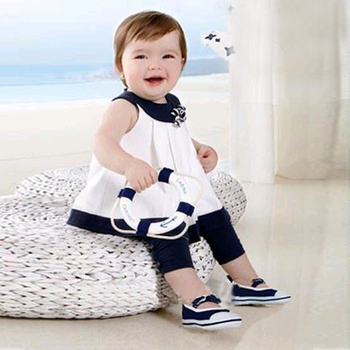Key points to remember
- communication begins at birth and the sounds that babies make have a purpose and are meaningful
- children learn by listening and watching - so talk to your child, sing songs and rhymes, look at books together
Introduction
Right from birth, babies learn language and communication skills and are able to react to different sounds. They will develop skills to understand language long before they start speaking. Each baby will develop these skills at a different rate, although there is a general pattern of early language development.
Things babies do before they learn to talk
Babies interact with their world by:
- crying and squealing
- calming to familiar voices or becoming quiet when familiar voices are heard
- exploring objects by banging them together, throwing, or mouthing them
- copying other people's actions; for example, waving bye-bye
- blowing raspberries, to show excitement and pleasure
- looking at toys / simple pictures / people with others; this sharing of attention is an important skill
- using their faces to communicate; for example, smiling, frowning
- listening to sounds and voices and trying to respond or interact
- learning to use their voice to communicate
- taking turns in making sounds
- cooing or using 'coos and goos'
- babbling; for example, 'bub-bub-bub' or 'da-da-da'
This is a very important period for communication and language development. These skills need to be encouraged.
Developing first words
Gradually, children begin to develop more meaningful communication by:
- using simple words such as 'mama' and 'dada' for their parents
- expressing 'yes' or 'no' by nodding or shaking their head
- making up words for particular objects; for example, 'dodo' for all animals
- starting to recognise and learn names of things they see a lot; for example, bear, car, ball
- using simple words to ask for something; for example, 'bobo' for bottle
- still babbling but with some real words mixed in
- using other words such as 'more' , 'all gone' , 'up'
- starting to recognise and name simple body parts; for example, eye, ear, nose
- following simple instructions such as 'come here', 'sit down', 'get book', 'clap hands', 'wave bye'
By the age of two years
- children have between 50 and 200 words that they use regularly
- they are starting to put two and three words together to make little sentences; for example, 'more juice', 'daddy go car', 'me up'
- children can answer simple questions such as 'what's that?', 'where is doggy?'
- children can follow simple instructions with two key words, such as 'put the apple in the bin', 'give the book to daddy', 'get your shoes and ball'
- they can turn pages in board books and point to or name things they recognise
By the age of three years
- children are using longer sentences of up to five words; for example, 'I want to go park mummy'
- they can use words like 'and' to link up to sentences, 'I go shops and get icecream'
- they understand and talk about colours, simple shapes, sizes and where things go; for example, they understand the difference between 'big' and 'little' and the difference between 'in', 'on', and 'under'
- they are able to follow instructions with three key words; for example, 'point to your nose, eyes and tummy', or 'give the big ball to daddy' - when they are paying attention
- they can have a very simple conversation
- they like to look at books with an adult and are able to point to pictures when asked; they also like to talk about the pictures
- they are constantly learning new words
Using language socially
A child's ability to use language socially is an important skill which, just like other parts of language, develops gradually over time.
See Using language socially -an important skill on this website.
What you can do to help your child learn to listen and talk?
- copy the playful sounds babies make as this will encourage two-way communication
- play simple games such as 'peek-a-boo' and tickle games
- talk, using short and basic sentences
- talk about and point out objects that can be seen and heard; for example, ball, car, plane
- sing songs and rhymes together
- expand on simple words; for example, the child says 'car'; you say 'push the car'
- praise attempts to talk; for example, 'good talking!'
- smile and show that you are listening
- look at books together and talk about the pictures
- talk about what is happening when you are with your child
- talk about what your child is doing
- make sure your child is looking at you, and you at them, when you talk
- take your child for walks; go to the park and other fun places, and talk about these places to help them learn new words
- limit your child's television watching so you have time during the day to do a variety of things with them, but if watching television, encourage them to watch shows that will help them learn
You may also find Encouraging language development on this website useful, including the sections:
Learning through play
You can help your child learn and develop by offering lots of opportunities to play and explore in an environment that is stimulating, safe and secure. Talk as you play to help your child understand and use language. Let your child hear the words that match what they are looking at and thinking about.
Source - http://www.kidshealth.org.nz








0 maoni:
Post a Comment